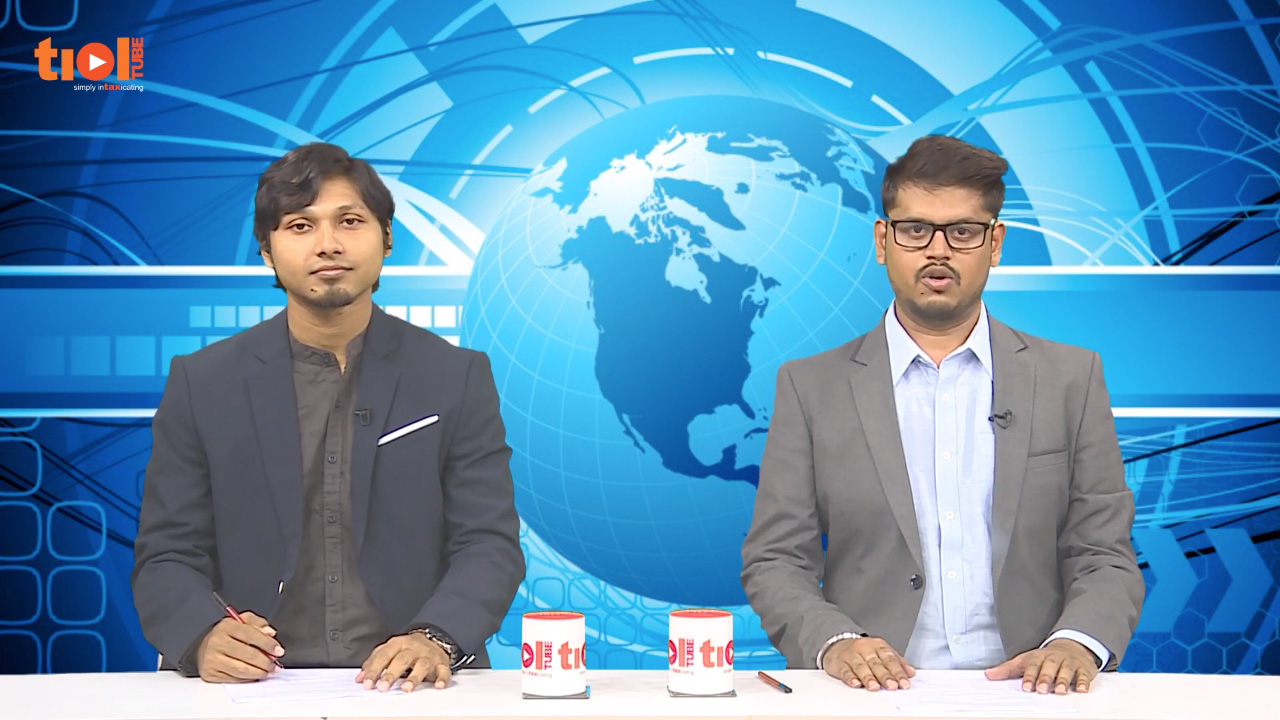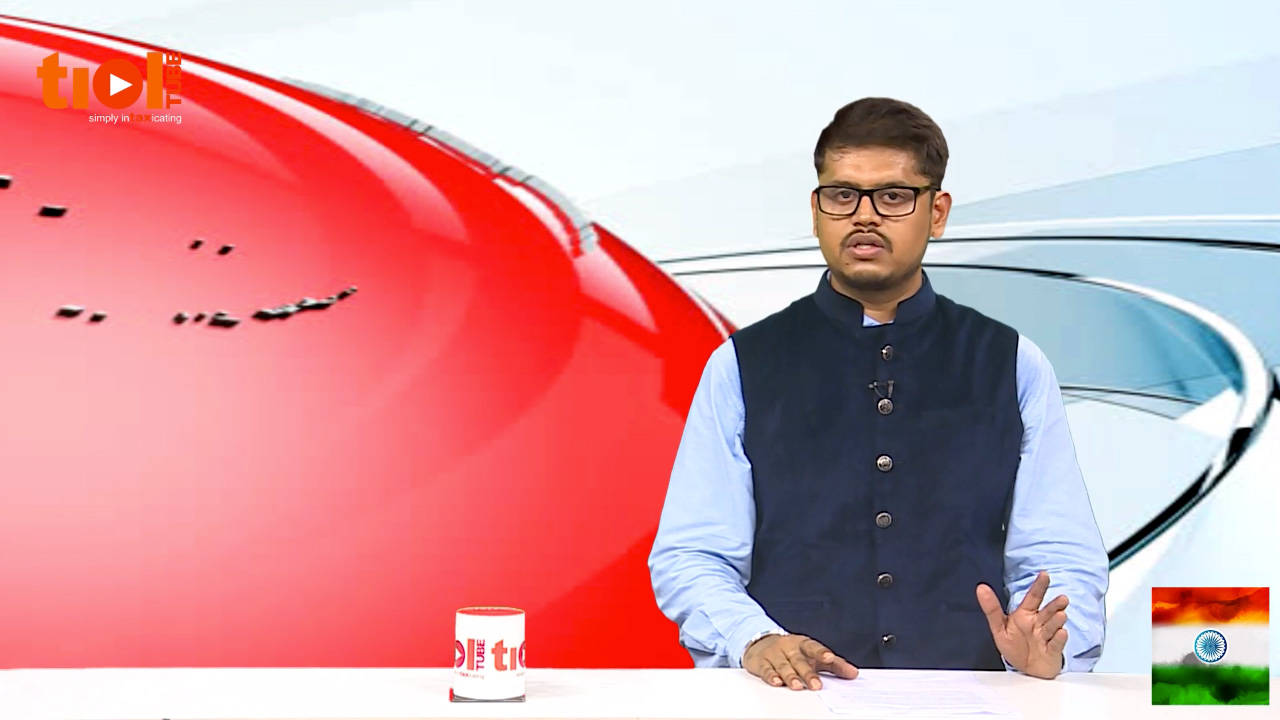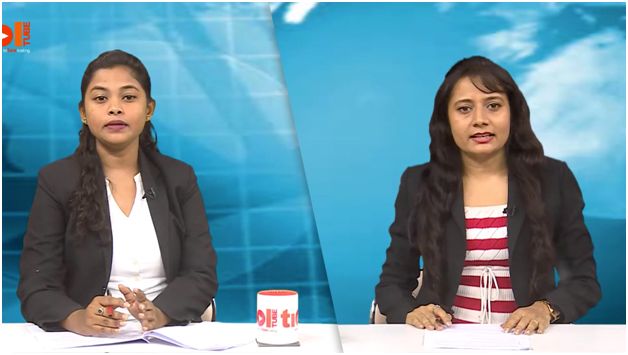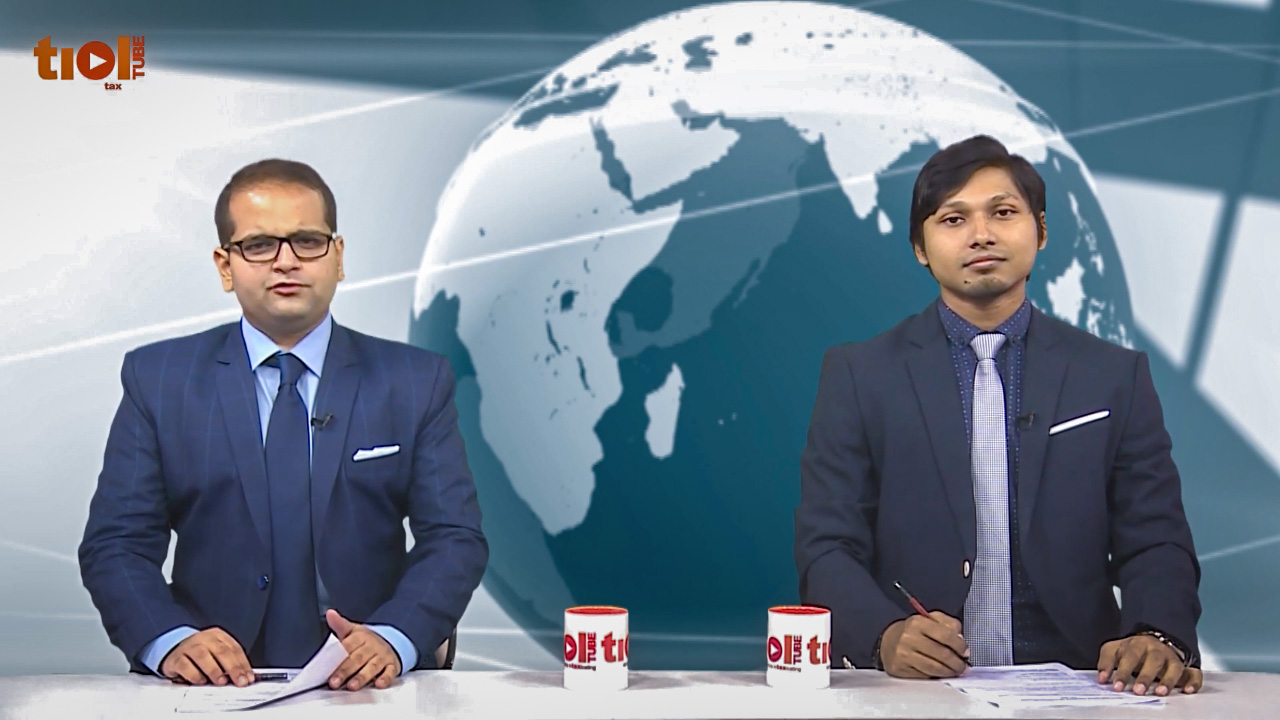|
SERVICE TAX
2019-TIOL-1846-HC-MAD-ST
Beeku Exports Vs Commissioner of GST & CE
ST - Appeal filed by the petitioner has been dismissed by the Commissioner(A) on the ground of limitation - inasmuch as it is held that against the o-in-o received on 22.09.2018 an appeal came to be filed only on 13.03.2019 - petitioner contends that the o-in-o was received only on 14.01.2019 and the appeal was filed accordingly - Writ petitioner had sought time to produce the envelope to demonstrate that original order was received only on 14.01.2019 and, therefore, the Bench had directed that no coercive action should be taken till the next listing - matter heard.
Held: A perusal of the postal acknowledgment card reveals that the writ petitioner addressee has been described as 'M/s. Beeku Exports, Chennai - 99' - In the considered view of this Court, this is hardly an address much less a postal address, wherein a proper delivery is possible - From the narrative, it emerges clearly that it can be safely inferred that the date of receipt of the order-in-original i.e., order dated 11.07.2018 is 14.01.2019 and not any earlier date - without expressing any opinion or view on the merits of the matter, the o-in-a is set aside and the Commissioner(A) is directed to take up the appeal for passing of orders as per law - Petition is allowed and disposed of as above: High Court [para 7, 10, 13, 14]
- Petition allowed: MADRAS HIGH COURT
2019-TIOL-1845-HC-MAD-ST
Gil Shared Services Pvt Ltd Vs Assistant Commissioner of GST & CE
ST - CENVAT Refund under Rule 5 of CENVAT Credit Rules, 2004 - Only ground on which the refund claims have been rejected i.e., refund of CENVAT credit is that they have been filed more than 2 1/2 years after the relevant date whereas they ought to have been filed within one year from the relevant date - petitioner submits that they are seeking refund only in accordance with the order of Appellate authority and they are not seeking a penny more.
Held: Original authority passed six different orders, sanctioning a part of the claim made by the writ petitioner and when the matter was carried in appeal, Appellate Authority passed six separate orders wherein certain heads of refund of CENVAT credit claim was allowed and part relief was granted to appellant (writ petitioner) in the appeals - in the light of Division Bench Judgment i.e., SPIC Limited case, second refund application is not necessary and, therefore, the basis of denial itself pales into insignificance - Court is convinced that the impugned orders are liable to be set aside holding that the refund applications of the writ petitioner claiming CENVAT credit refund cannot be rejected on the ground that it is beyond one year from the relevant date - Respondent is directed to process the refund applications and make refund in each of the six applications to the writ petitioner in accordance with law, as expeditiously as possible and in any event within 12 weeks from the date of receipt of a copy of this order - Writ petitions are allowed: High Court [para 17, 19 to 21]
- Petitions allowed: MADRAS HIGH COURT
2019-TIOL-2345-CESTAT-MAD
Antliaa Event Vs CST
ST - Event Management Service - Issue is whether the penalty imposed under section 78 of the Finance Act, 1994 can be waived.
HELD - The appellant apparently hid everything, without even bothering to disclose even a bit, by not choosing to file ST-3 - sufficient time was granted even after survey by the revenue intelligence - even the Commissioner has fairly tried getting clarifications from the appellant's sundry debtors on account of the appellant's failure to do so - Commissioner has also been fair in extending the cum-tax value benefit despite the above and only quantified the demand thereafter - in spite of all this, the appellant has not paid the differential duty of Rs.38.88 lakhs, which doesn't show their bonafides - the maxim ‘He who comes into equity must come with clean hand' is quite aptly applicable here - the Bench is not impressed by the arguments of the appellant nor finds any infirmity in the impugned order and hence the appeal is dismissed: CESTAT [para 5, 6, 7]
- Appeal dismissed: CHENNAI CESTAT
2019-TIOL-2344-CESTAT-MAD
Airvent Systems Pvt Ltd Vs Commissioner of GST & CE
ST - On verification of records, it was seen that the appellant had not paid ST on Co-consultancy Services rendered by them and had also short paid ST on the services provided towards Erection, Commissioning and Installation Services - the period of dispute is from 2005-06 to 2007-08 - SCN issued - demand confirmed along with interest, penalty imposed - on appeal, the Commissioner (Appeals) upheld the demand of ST on Co-consultancy Service sand also upheld the demand of ST towards Works Contract Service after directing to re-quantify the amount under Works Contract Service - the penalty was ordered to be re-quantified and revised accordingly - appeal to CESTAT.
HELD - Erection, Commissioning and Installation Services : When the contract is composite in nature, involving transfer of property in goods, same would definitely fall under Works Contract Services - For the period prior to 1.6.2007, the demand of ST for composite contracts cannot sustain as per the decision of the Supreme Court in the case of Larsen & Toubro Ltd. [ 2015-TIOL-187-SC-ST ] - for the period post 1.6.2007, though the demand is made in the SCN under Erection, Commissioning and Installation Service and the adjudicating authority has also confirmed the demand under Erection, Commissioning and Installation Service, the Commissioner (Appeals) has travelled beyond the SCN to confirm the demand under Works Contract Service - this is highly erroneous and unsustainable - furthermore, in the decision of Real Value Promoters Pvt. Ltd. [ 2018-TIOL-2867-CESTAT-MAD ], the Tribunal has held that the demand of ST under Erection, Commissioning and Installation Services cannot sustain for composite contracts for the period post 1.6.2007 - the demand of ST under Erection, Commissioning and Installation Services/Works Contract Services cannot sustain and requires to be set aside: CESTAT
Co-consultancy Services : The issue being an interpretational one as also being mired in litigations during the relevant period, the allegation that the appellant has suppressed facts with intention to evade payment of ST cannot sustain and requires to be set aside - the demand under Co-consultancy Services is barred by limitation - the demand under both these issues cannot sustain - the impugned order is set aside - the appeal is allowed : CESTAT [para6.2, 6.3, 7.2, 8, 9]
- Appeal allowed: CHENNAI CESTAT
2019-TIOL-2330-CESTAT-ALL
Nagar Nigam Vs CCE & ST
ST - The issue involved is related to demand of Service Tax on sale of space or time for advertisement from the assessee, who is a Nagar Nigam - Both the sides have agreed that the issue is no more res integra and was decided through various decisions of Tribunal in respect of Nagar Nigam - One such decision is in the case of Nagar Nigam, Aligarh - Said decision was and based upon other decisions of Tribunal in case of Lucknow Nagar Nigam - Such charging of fee to the agencies was a statutory levy for which municipal corporations had powers and such levies did not amount to any service so as to call for payment of Service Tax - No merit found in the impugned order and the same is set aside: CESTAT
- Appeal allowed: ALLAHABAD CESTAT
2019-TIOL-2329-CESTAT-BANG
National Trades And Agencies Vs CCE, C & ST
ST - The assessee is a Custom House Agent and have provided the CHA service to units situated in Cochin Special Economic Zone without payment of service tax - They claimed the benefit of service tax exemption under Notfn 17/2002 ST as well as the Notfn 4/2004 ST - In respect of period 2004-05 covered by Notfn 4/2004, condition, which was there in Notfn 17/2002, did not find place in successor Notfn - Still the benefit was denied for the reason that the services were consumed within the SEZ - Initially Notfn 17/2002 was issued - Even though there was a requirement of an authorization to be given by a Committee headed by Chief Commissioner, it has been submitted that such Committee was never set up and hence, there was no opportunity for obtaining such a certificate - Said condition stands deleted in the subsequent Notfn 4/2004 - The clarification issued by Development Commissioner, Cochin Special Economic Zone also clarifies the issue - Assessee has rendered the CHA service to units within the Special Economic Zone and hence the services may be considered as having been utilized within the zone - Denial of the benefit of the two exemption Notifications for minor procedural violation is not justified - Hence, the impugned order is set aside: CESTAT
- Appeal allowed: BANGALORE CESTAT
CENTRAL EXCISE
2019-TIOL-2350-CESTAT-BANG
Gokak Sugars Ltd Vs CCT
CX - Appellants are engaged in the manufacture of sugar, molasses and ethyl alcohol - they are availing cenvat credit - they are also engaged in the manufacture of electricity which is used captively for manufacture of excisable goods and the excess/surplus quantity of electricity is sold to outside power distribution companies on consideration without payment of duty, as no rate of duty has been prescribed in the CETA, 1985 - SCN issued demanding 6% of the value of exempted goods - original authority confirmed recovery of CENVAT credit of Rs.56,483/- (proportionate credit) attributable to input/input services used in the generation of electricity along with interest and also imposed penalty of Rs.5000/- - Department filed appeal before the Commissioner (A) who remanded the matter to examine the issue afresh - assessee in appeal before CESTAT.
HELD: In appellant's own case for a different period, both the authorities have accepted the proportionate reversal and the Revenue filed appeal before the Tribunal which was dismissed by the Tribunal - further, as per Rule 6(1) of the Cenvat Credit Rules, 2004 [CCR] read with Explanation (1), the non-excisable goods which are manufactured by the manufacturer in his factory will get covered under Rule 6(1) in the light of the said Explanation - in other words, non-excisable goods which were not manufactured will not fit into the definition as prescribed under Rule 6(1) in spite of insertion of Explanation (1) to Rule 6 of the CCR - in view of the various decisions relied upon by the appellant, the appellants are not required to pay 6% of the value of the electricity sold to outside agencies - but in the present case, the appellant has reversed the proportionate credit and thereby complied with the statutory requirement as provided in Rule 6(3A) - the impugned order is not sustainable and, therefore, the same is set aside by allowing the appeal of the appellant : CESTAT [para6]
- Appeal allowed: BANGALORE CESTAT
2019-TIOL-2349-CESTAT-BANG
Givaudan India Pvt Ltd Vs CCT
CX - Appellant has filed two COD applications and two appeals against the impugned order - the COD applications have been filed seeking condonation of delay of 506 days in filing the appeals.
HELD: Appellant, as per their own averments in the applications, received the copy of the impugned order in the first week of June 2017 by the security staff of the appellant but it was not handed over to the employee concerneddealing with Central Excise cases - further, as per the averments in the applications, appellant came to know about the impugned order in November/December 2018 and thereafter filed the appeal in February 2019 after the delay of around 3 months which was not sufficiently explained with cogent and convincing reasons - further, in the present case, the appellants have been very casual and negligent in not filing the appeal expeditiously even after coming to know of the impugned order in November / December 2018 - consequently, no sufficient reasons found for condoning such an inordinate delay of 506 days - in view of this, the COD applications are dismissed - consequently, both the appeals are also dismissed : CESTAT [para 6]
- COD applications/Appeals dismissed: BANGALORE CESTAT
2019-TIOL-2348-CESTAT-BANG
Arya Vaidya Pharmacy Coimbatore Ltd Vs CCE, C & ST
CX - Appellant manufactures both dutiable and exempted Ayurvedic medicines and availed cenvat credit of excise duty paid on inputs under Rule 6(1) of Cenvat Credit Rules, 2001, 2002 and 2004 - they did not reverse the credit of duty availed on fuel used in the manufacture of exempted goods for the period 30.1.2002 to 28.2.2006 and 1.3.2006 to 31.10.2006 - SCNs issued - demands confirmed along with interest, penalties imposed - on appeal, the Commissioner(A) rejected the same but dropped the penalties imposed under Section 11AC of the CEA - appeal to CESTAT.
HELD: Appellant has no case on merit in view of the judgment of the Gujarat High Court in the case of Deeyakar Aluminium Pvt. Ltd. wherein it is held that credit will not be available on such quantity of fuel which is used in the manufacture of exempted goods; that sub-rule (2) nowhere says that the legal effect of sub-rule(1) will stand terminated in respect of fuel-inputs which do not fall in sub-rule(2) - in the decisions relied upon by the appellant, it has been consistently held by the Tribunal that the extended period cannot be invoked when penalty is dropped under Section 11AC - by following the ratios of the said decisions, the demand for the period from 30.1.2002 to 30.11.2005 is time barred and set aside, the appellant is liable to pay the duty for the period from December 2005 to October 2006 and for the purpose of quantification of duty for the normal period, the case is remanded back to the original authority to re-quantify the demand for the normal period along with interest - accordingly, the appeal is partially allowed and the demand for the extended period is set aside and the appeal is allowed by way of remand : CESTAT [para 6]
- Appeal partially allowed/remanded: BANGALORE CESTAT
2019-TIOL-2347-CESTAT-MUM
Apcotex Industries Ltd Vs CCE & ST
CX - Rule 2(l) of CCR, 2004 - Issue is as to whether General Insurance Services, Works Contracts Services and Motor Car Services/General Services are Input Services.
HELD: Transit insurance has been consistently held to be admissible by the CESTAT and also by this Mumbai Zonal Bench in the final order passed in appellant's own case on 08.03.2018 covering period from November 2013 to November 2014 -therefore, in conformity to the precedent set by this Tribunal and carrying forward the judicial discipline, tax paid on transit insurance for export of goods is an admissible credit -next, the works undertaken by the appellant are of the nature of repair and renovation and cannot be equated with just construction of civil structure - the Tribunal have consistently held that such modernization, renovation and repair of factory premises are admissible input services - therefore, the appellant is entitled to take and utilise those credits and the findings of the Commissioner (Appeals) is also erroneous in this respect - next, a cursory glance of exclusion clause (BA) in the definition of input service as provided in Rule 2(l) of Cenvat Credit Rules, 2004 clearly indicates that such credit is admissible if the same motor vehicle is a capital goods - the fact that the vehicle was owned by the company and was used for the business activities of the company remained undisputed all throughout the proceedings - denial of cenvat credit to the appellant on such general services (motor vehicle) on the ground that the same is covered in the exclusion clause is erroneous - the appeals are allowed and the impugned order is set aside : CESTAT [para 5, 6, 7]
- Appeals allowed: MUMBAI CESTAT
2019-TIOL-2346-CESTAT-HYD
Harshini Poly Films Vs CCT
CX - Appellant availed cenvat credit of CE duty paid on capital goods during 2012-13 and also claimed depreciation on the amount of CE duty and filed returns with the income tax authorities stating so - SCN issued - demand dropped for reversal of cenvat credit as also for interest, however, equivalent amount of penalty imposed.
HELD: Appellant filed revised income tax returns with the authorities writing back the depreciation claimed - this would amount to non-availment of depreciation and in accordance of provisions of Cenvat Credit Rules, 2004 [CCR] - the adjudicating authority has taken a conscious note of this and dropped the demand alongwith interest, recording so, very clearly - if that be the case, the question of imposition of any penalty on the appellant does not arise as provisions of Rule 15 (2) of CCR presupposes the demand of duty or irregular availment of cenvat credit - in the absence of any confirmation of demand, penalty imposed by the lower authorities cannot withstand the scrutiny of law - the impugned order is set aside and the appeal is allowed holding that penalty is set aside : CESTAT [para 7, 8]
- Appeal allowed: HYDERABAD CESTAT
2019-TIOL-2328-CESTAT-MAD
Whirlpool Of India Ltd Vs CGST & CE
CX - The appeal is dismissed for non-prosecution: CESTAT
- Appeal dismissed: CHENNAI CESTAT
2019-TIOL-2327-CESTAT-MAD
Chitrakoot Steel And Power Pvt Ltd Vs CGST & CE
CX - During the relevant period, the intelligence had been gathered that the assessee had not properly accounted for its production and that it removed dutiable goods without payment of appropriate duties - Hence the Revenue officers visited the assessee's premises, whereupon it was observed that the Finished Goods Stock Register in RG-1 format was maintained only up to 23.01.2015 - Shortage of stock of Sponge Iron in Lumps & Fines was also observed - Two computer CPUs & some other documents were seized - SCNs were issued to the assessee - On adjudication, the goods were confiscated u/r 25 of the CER 2002, along with fines u/r 25 and u/s 34 of the CEA 1944 - On appeal, the Commr.(A) sustained such findings - Hence the present appeal.
Held: The assessee claimed to be following the ERP system for accounting purchase and sales and also in the preparation of its annual statements which are in tune with the Central Excise Rules, which fact also finds place in the Mahazar recorded - It is not the Revenue's case that the ERP system being followed was defective - There is no case of any differences being found in the RG-1 stock register & the ERP system - There is no allegation that the assessee did not maintain proper records or omitted to follow the relevant rules & regulations in its compliances - Interestingly, no fault is found with the assessee's explanation for non-entry in the RG-1 register - Hence the conditions in Rule 25 remain unsatisfied - When Clause (b) of Rule 25 speaks of 'account', the adjudicating authority has to find out that the same was not accounted anywhere, not just in RG-1 but even in ERP, since the Central Excise Rules also recognize ERP as a method - Hence the proceedings appear to have been conducted in haste & without proper enquiry and with insufficient investigation - Hence the O-i-A is unsustainable: CESTAT
- Assessee's appeal allowed: CHENNAI CESTAT
CUSTOMS
NOTIFICATION
dgft19pn026 DGFT notifies TRQ quota for import of Crude Soyal oil from Paraguay CASE LAWS
2019-TIOL-1848-HC-DEL-CUS
Pr.CC Vs Sushant Agrawal
Cus - By virtue of impugned order, the Tribunal has remanded the case to the original adjudicating authority to decide the issue of jurisdiction after awaiting the judgment of Supreme Court in Mangli Impex Limited 2016-TIOL-877-HC-DEL-CUS - In view of decision in Vipul Overseas Pvt. Ltd. 2017-TIOL-2478-HC-DEL-CUS , the impugned order passed by Tribunal is set aside with a direction to the Tribunal to decide the appeal on merits including the question of jurisdiction without being influenced by the decision of this Court in Mangli Impex: HC
- Appeal disposed of: DELHI HIGH COURT
2019-TIOL-1847-HC-AHM-CUS
Farmson Pharmaceuticals Gujarat Pvt Ltd Vs UoI
Cus - Anti-dumping duty - Impugned Final Finding recorded in the Notification No.7/16/2018-DGAD dated 29.01.2019, cannot be said to be strictly in accordance with the provision of Rule 23 of the Rules, as there is non-advertance to the material placed on record and there is non-compliance with the principle of natural justice as no requisite information was made available and the conclusions are diametrically opposed to the material on record - Therefore, Court is left with no other alternative, but to remand back the matter to the authority concerned after quashing and setting aside the same for reconsideration on the aspects which have been mentioned and record its finding and as the extended period of notification of anti dumping duty is ending, the same is also required to be extended for appropriate time so that assessing the material and recording the final findings afresh could be undertaken meaningfully and without jeopardizing the parties right and contentions and rendering it infructuous - respondent no.2 is directed to undertake the exercise of recording its final finding afresh in accordance with the observations made strictly in accordance with the provisions of Rule-23 of the Rules and after affording full opportunity to the parties and complying with the principles of natural justice and respondent no.1 shall appropriately issue notification extending the anti dumping duty on the product in question, till the final findings are rendered - The impugned final findings dated 29.01.2019 are hereby quashed and set aside - petition is allowed: High Court [para 29 to 31]
- Petition allowed: GUJARAT HIGH COURT
2019-TIOL-2326-CESTAT-HYD
Big Apple Life Vs CC
Cus - During the relevant period, the assessee-company imported 1107 Pentium 4 systems, 110 CRT Monitors and 240 pieces of 512 MB RAM, all of which were old & used - On inspection however, 112 CRT monitors were found, as were 177 pieces of RAM - The Revenue observed that as the goods were old & used, the assessee required a license from the DGFT for their import & admittedly, the assessee had no such license upon import - SCN was issued alleging that the imported goods were hazardous waste covered under the Hazardous Wastes (Management, Handling and Transboundary Movement) Rules, 2008 - The goods were proposed to be confiscated with option of redemption fine being given - Penalty u/s 112 was also proposed & the goods were directed to be re-exported - Similar proceedings were initiated in another matter albeit for a different period - The proposals in the SCNs were confirmed upon adjudication - On appeal, the Commr.(A) upheld such orders, albeit reducing the quantum of the fines and penalties - Hence the present appeals.
Held: The present case does involve contravention of Para2.17 of the FTP since goods imported were old & used and could not have been imported without license issued by DGFT - As the assessee imported the goods in contravention of the FTP, they are liable for confiscation u/s 111 of the Act - Penalty u/s 112 is also imposable - Moreover, from the SCNs, the O-i-Os and the O-i-As, there is nothing on record to show that the imported goods were covered under any notification stating these to be hazardous waste - Schedules I, II and III to the Hazardous Wastes (Management, Handling and Transboundary Movement) Rules, 2008 which list hazardous wastes do not include the imported goods - Hence the Revenue made out no case that the goods classify as hazardous waste - Nonetheless, their confiscation & penalty imposed are sustained: CESTAT
- Assessee's appeals allowed: HYDERABAD CESTAT |







